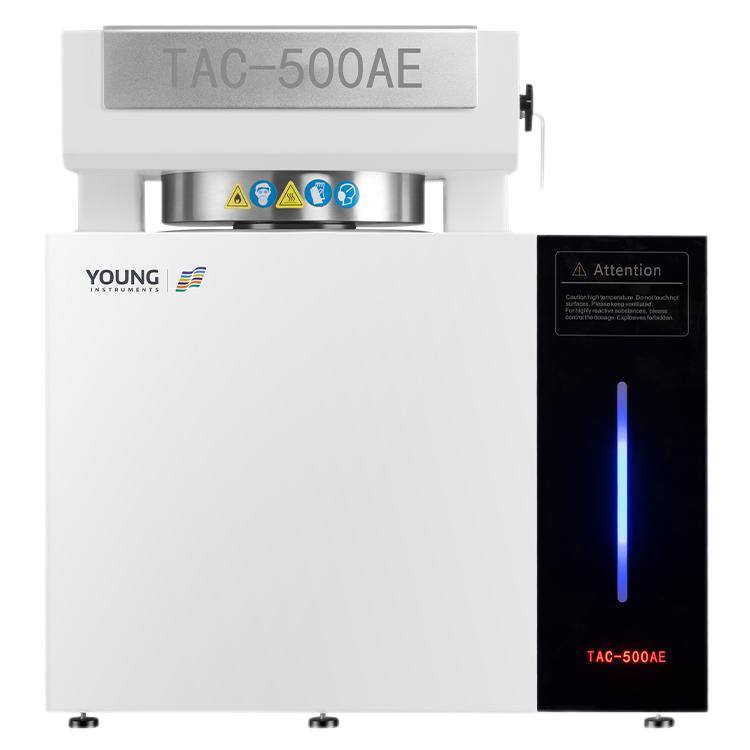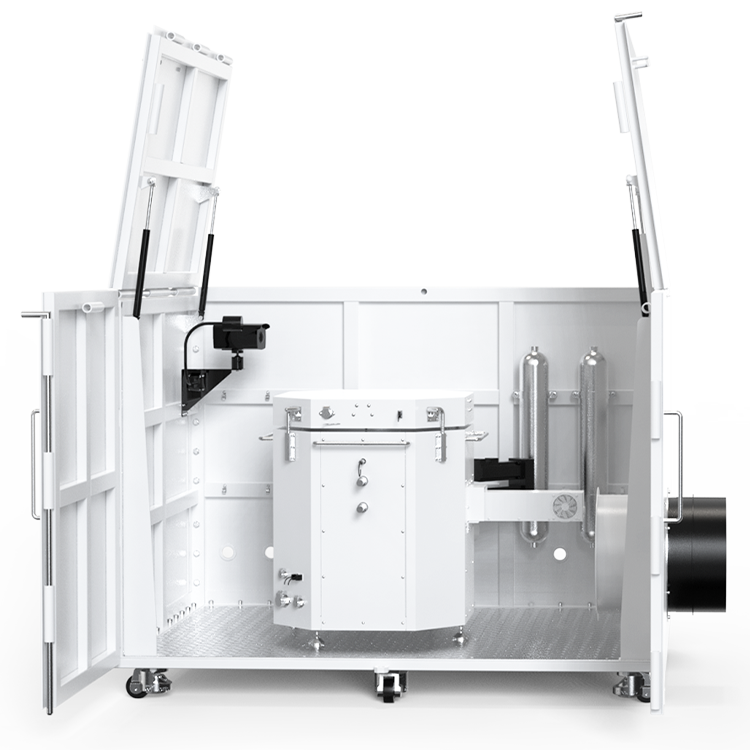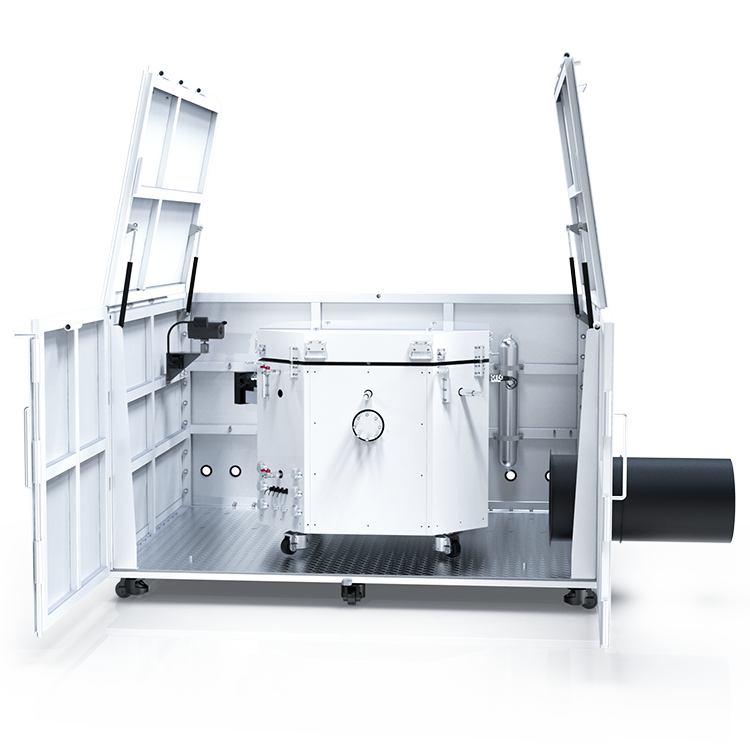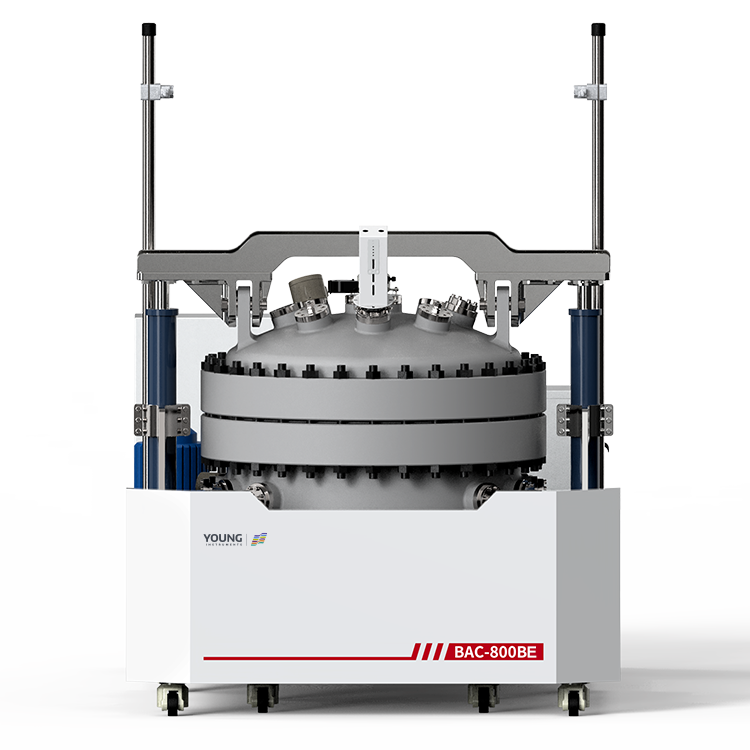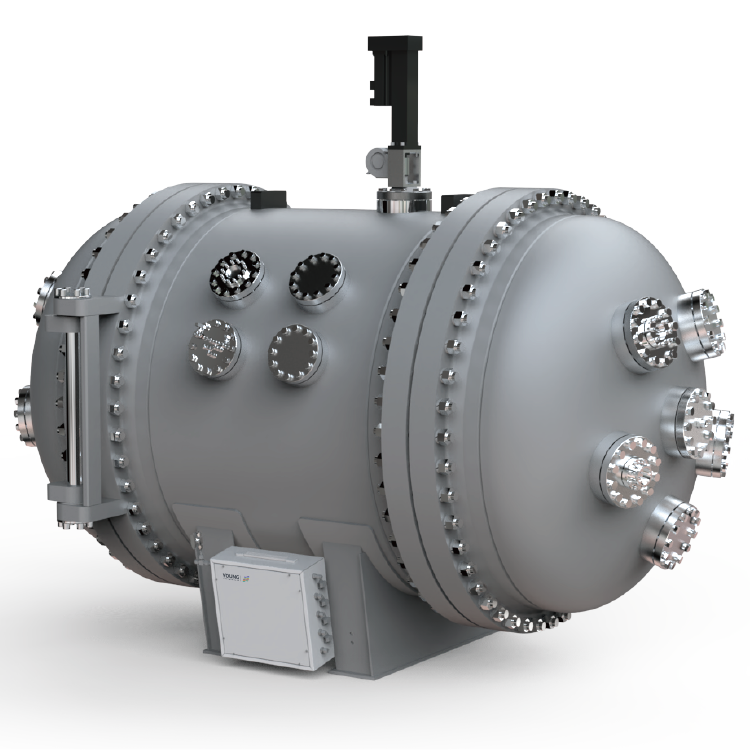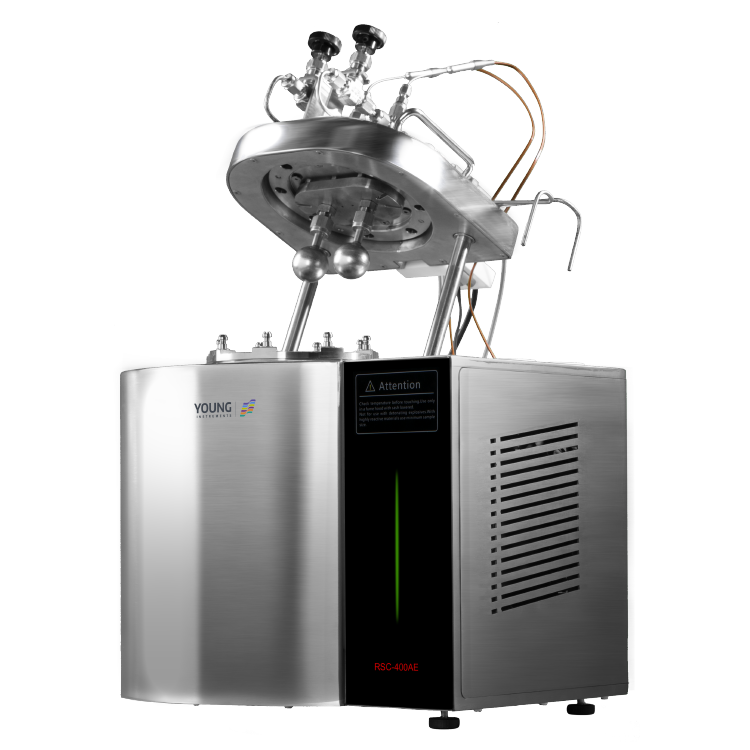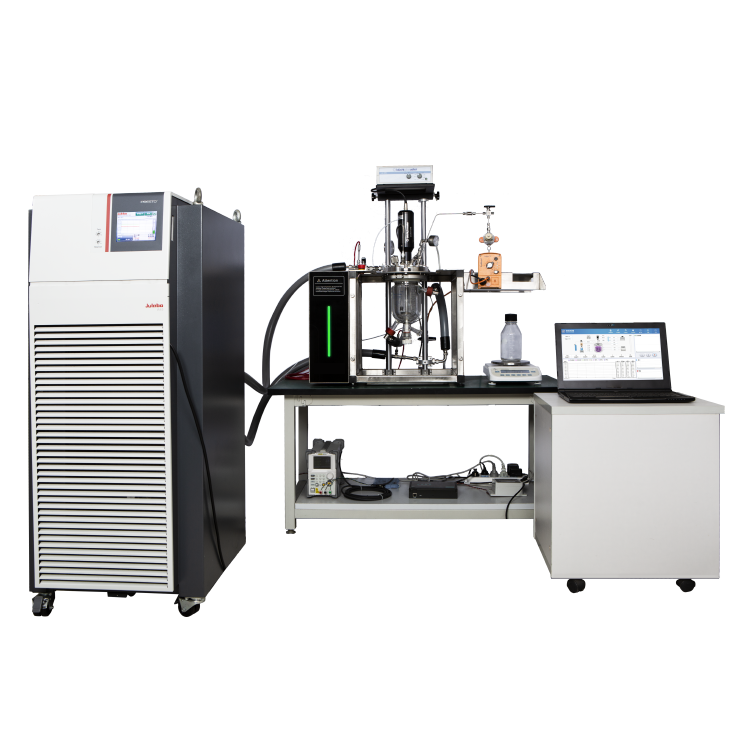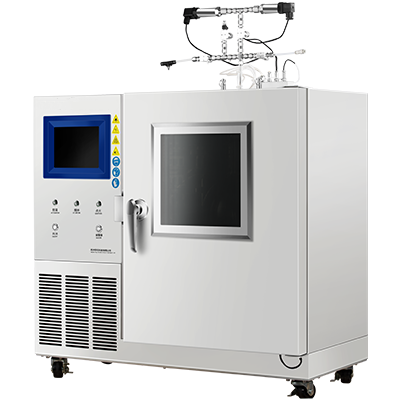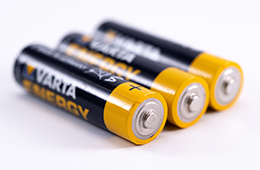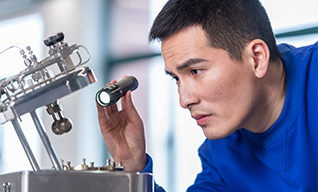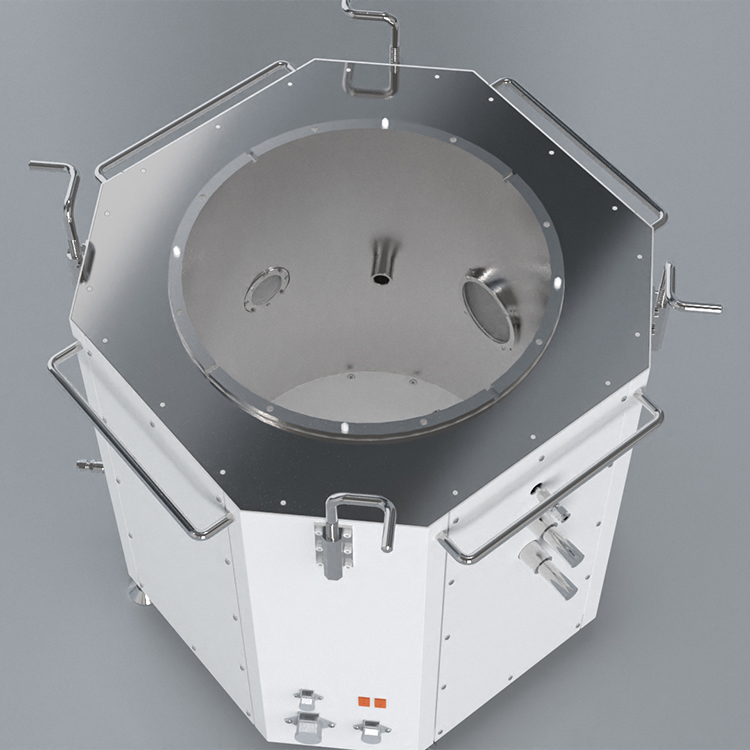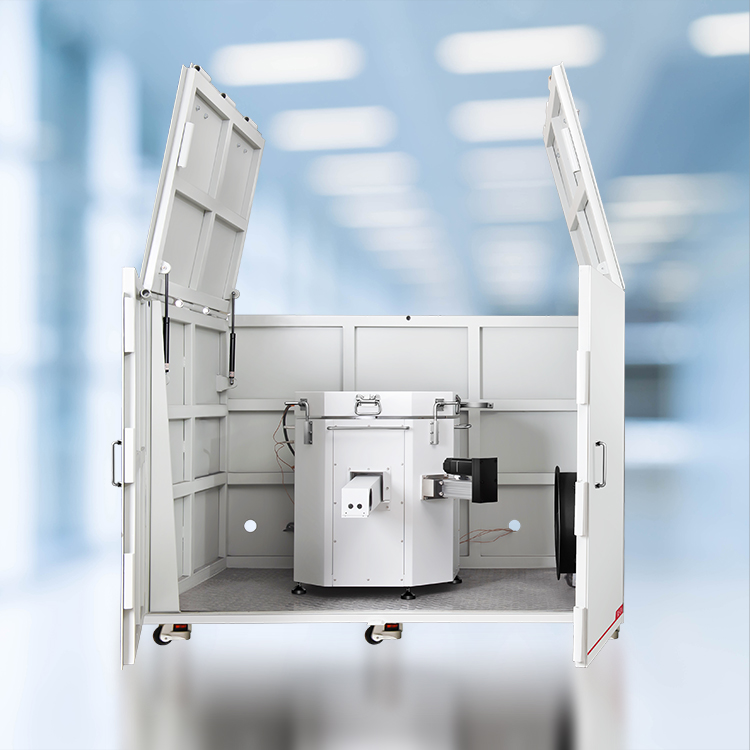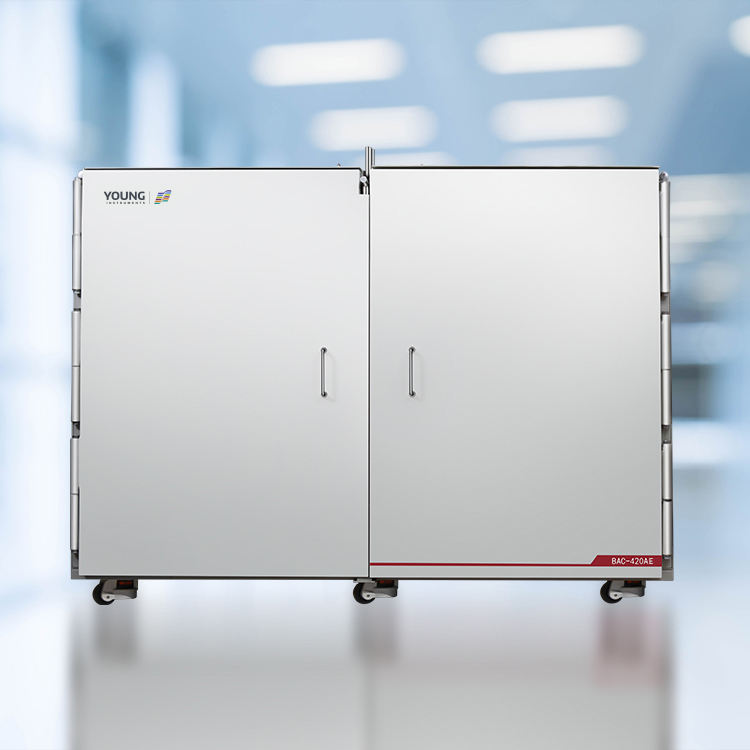
Battery Testing Calorimeter
The Large Battery Testing Calorimeter is a high-precision thermal analysis instrument specifically designed for the thermal runaway testing research of lithium-ion batteries, sodium-ion batteries, solid-state batteries, as well as battery modules and packs. This device can simulate the adiabatic environment of the battery thermal runaway process, reveal the mechanism of battery thermal runaway, quantify battery thermal stability and disaster-causing hazards, and provide a reliable data source.
Test Parameters
Thermal Runaway Onset Temperature, Maximum Rate of Temperature Rise, Adiabatic Temperature Rise, Specific Heat Capacity, etc.
Applicable Fields
Battery Pack, Battery Cell
Keywords
Battery Cell Testing, Lithium-ion Battery Testing, Battery Performance Testing
Description
Product Uses
- Battery Thermal Runaway Analysis: Investigate the triggering mechanisms of thermal runaway and assess battery safety.
- Battery Heat Release Rate Testing: Measure the heat release process of batteries to provide data support for thermal management.
- Regulatory Certification Testing: Complies with battery safety standards such as UL 9540A, ASTM E1981-98(2012), GB/T 36276-2023, etc.
- Thermal Management Optimization: Assist companies in optimizing battery cooling systems and heat dissipation designs.
Notes
- Check the battery status before testing to ensure there is no short circuit, damage or leakage.
- The laboratory environment needs to be well ventilated to avoid the accumulation of harmful gases.
- Equipment operators need to receive professional training to ensure safe operation.
- Regularly maintain the temperature sensor and cooling system to ensure measurement accuracy.
- Avoid external force impact on the battery during the test to prevent experimental data errors or accidental safety accidents.
Product Type
- Check the battery condition before testing to ensure there are no short circuits, damage, or leaks.
- The laboratory environment should be well-ventilated to prevent the accumulation of harmful gases.
- Equipment operators must receive professional training to ensure safe operation.
- Regularly maintain the temperature sensors and cooling system to ensure measurement accuracy.
- Avoid external impacts on the battery during testing to prevent errors in experimental data or accidental safety incidents.
Customer needs
- Laboratory Grade: Suitable for testing individual battery cells and modules.
- Industrial Grade: Supports testing of large-size batteries and modules.
- Customized Models: Custom solutions can be provided based on industry needs.
Service & Support
- Remote and on-site technical support.
- Equipment maintenance and calibration services.
- User training to enhance operational standards.
- Software upgrades to optimize data analysis capabilities.
Features
Specifications
| Adiabatic Furnace Dimensions | Diameter 420mm, Depth 520mm |
| Self-exothermic Detection Sensitivity | 0.02℃/min to 0.05℃/min |
| Temperature Difference between Furnace and Sample in Constant Temperature | ≤0.5℃ |
| Temperature Control Range | RT to 300℃ |
| Temperature Tracking Rate | 0.02℃/min to 13℃/min |
| Sealed Canister Pressure Range | 0 to 2MPa |
| Maximum Needle Travel | Setting through software |
| Charge and Discharge Column Overcurrent Capability | -500A to 500A |
Applications
Videos
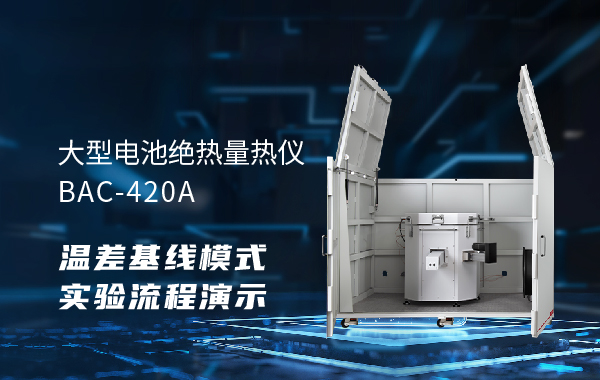
Instruction

Large Battery Adiabatic Calorimeter
BAC-420AE








